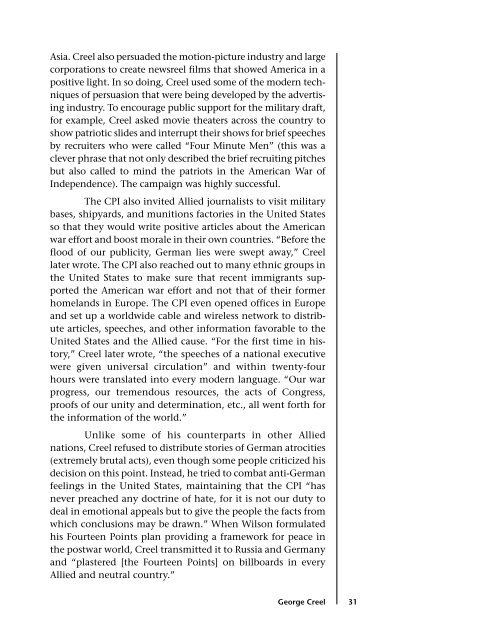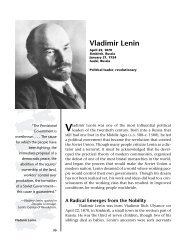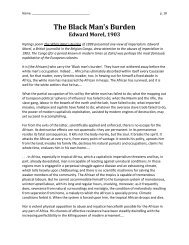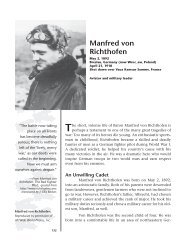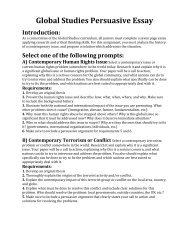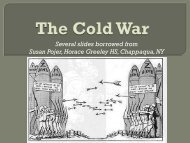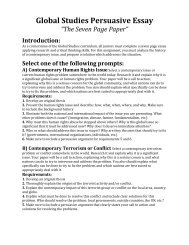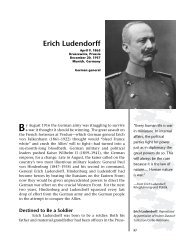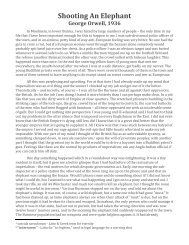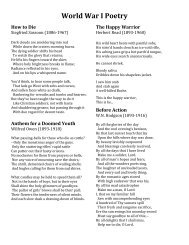George Creel
George Creel
George Creel
Create successful ePaper yourself
Turn your PDF publications into a flip-book with our unique Google optimized e-Paper software.
Asia. <strong>Creel</strong> also persuaded the motion-picture industry and large<br />
corporations to create newsreel films that showed America in a<br />
positive light. In so doing, <strong>Creel</strong> used some of the modern techniques<br />
of persuasion that were being developed by the advertising<br />
industry. To encourage public support for the military draft,<br />
for example, <strong>Creel</strong> asked movie theaters across the country to<br />
show patriotic slides and interrupt their shows for brief speeches<br />
by recruiters who were called “Four Minute Men” (this was a<br />
clever phrase that not only described the brief recruiting pitches<br />
but also called to mind the patriots in the American War of<br />
Independence). The campaign was highly successful.<br />
The CPI also invited Allied journalists to visit military<br />
bases, shipyards, and munitions factories in the United States<br />
so that they would write positive articles about the American<br />
war effort and boost morale in their own countries. “Before the<br />
flood of our publicity, German lies were swept away,” <strong>Creel</strong><br />
later wrote. The CPI also reached out to many ethnic groups in<br />
the United States to make sure that recent immigrants supported<br />
the American war effort and not that of their former<br />
homelands in Europe. The CPI even opened offices in Europe<br />
and set up a worldwide cable and wireless network to distribute<br />
articles, speeches, and other information favorable to the<br />
United States and the Allied cause. “For the first time in history,”<br />
<strong>Creel</strong> later wrote, “the speeches of a national executive<br />
were given universal circulation” and within twenty-four<br />
hours were translated into every modern language. “Our war<br />
progress, our tremendous resources, the acts of Congress,<br />
proofs of our unity and determination, etc., all went forth for<br />
the information of the world.”<br />
Unlike some of his counterparts in other Allied<br />
nations, <strong>Creel</strong> refused to distribute stories of German atrocities<br />
(extremely brutal acts), even though some people criticized his<br />
decision on this point. Instead, he tried to combat anti-German<br />
feelings in the United States, maintaining that the CPI “has<br />
never preached any doctrine of hate, for it is not our duty to<br />
deal in emotional appeals but to give the people the facts from<br />
which conclusions may be drawn.” When Wilson formulated<br />
his Fourteen Points plan providing a framework for peace in<br />
the postwar world, <strong>Creel</strong> transmitted it to Russia and Germany<br />
and “plastered [the Fourteen Points] on billboards in every<br />
Allied and neutral country.”<br />
<strong>George</strong> <strong>Creel</strong> 31


